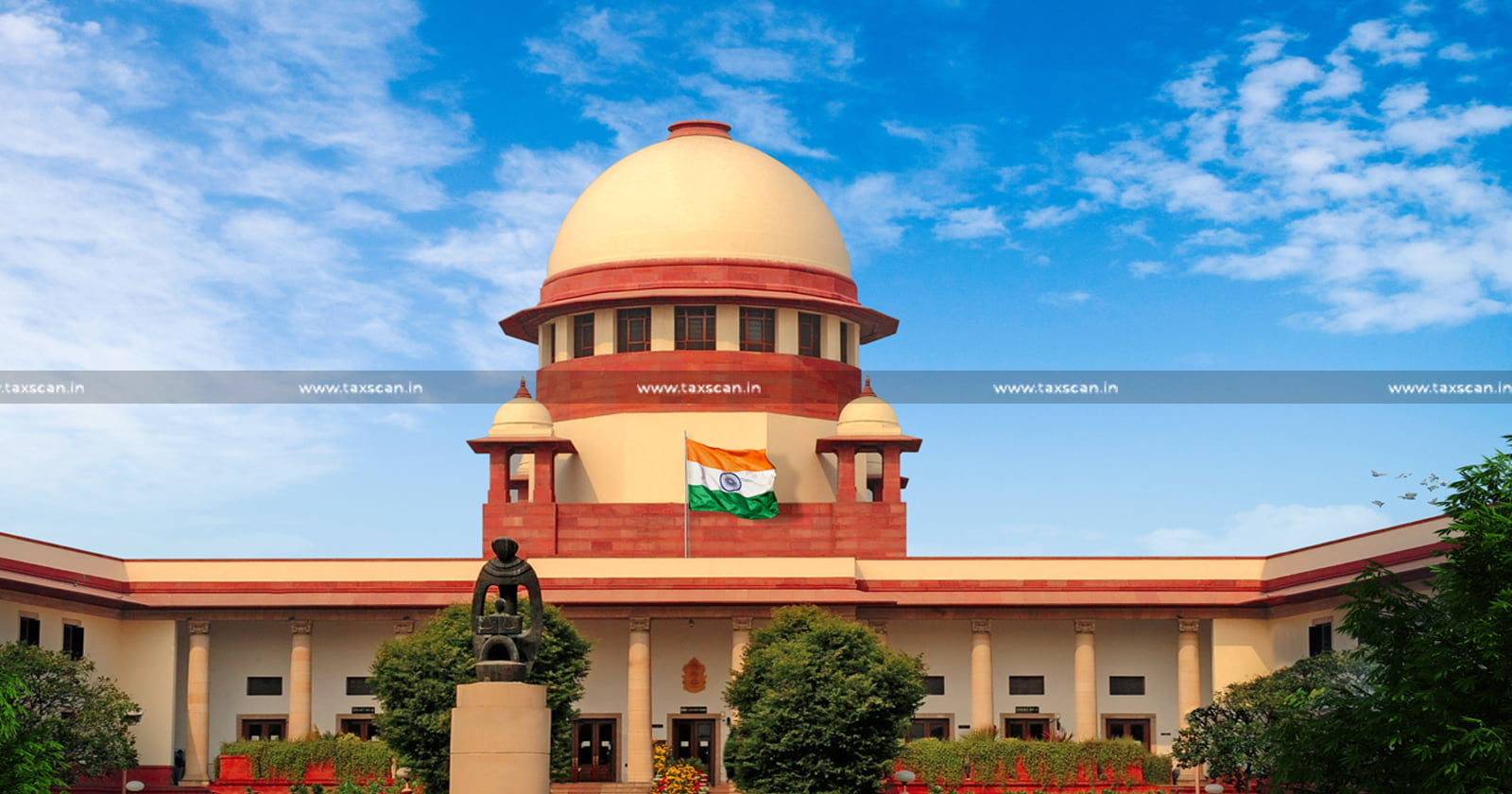Amounts covered by Security deposits under Agreements Constitute Financial Debt: Supreme Court Upholds NCLAT order [Read Judgement]
No hesitation in concurring with the NCLAT's view that the amounts covered by security deposits under the agreements constitute financial debt

Amounts covered – Security deposits – Agreements Constitute Financial Debt – Supreme Court – NCLAT order – taxscan
Amounts covered – Security deposits – Agreements Constitute Financial Debt – Supreme Court – NCLAT order – taxscan
The Supreme Court upheld the National Company Law Appellate Tribunal ( NCLAT ) order affirming that amounts covered by security deposits under agreements constitute financial debt.
Justices Abhay S. Oka and Pankaj Mithal held in alignment with NCLAT's perspective, recognizing these deposits as financial debt under sub-section (7) of Section 5 of the Insolvency and Bankruptcy Code ( IBC ), thereby designating the depositor as a financial creditor.
The case revolved around two agreements dated April 1, 2014, and April 1, 2015, between the corporate debtor (M/s Mount Shivalik Industries Limited), Global Credit Capital Limited and the first respondent. These agreements, presented as letters from the debtor to the first respondent, appointed the latter as a 'Sales Promoter' to endorse beer manufactured by the debtor in Ranchi, Jharkhand, over twelve months. Among the terms, the debtor mandated a minimum security deposit of Rs.53, 15,000/- with the corporate debtor, which will carry interest @21% per annum from the respondent.
The letter provided that the corporate debtor will pay the interest on Rs.7, 85,850/- @21% per annum. The terms of the agreement/letter dated 1st April 2015 are identical. The only difference is that under the second agreement/letter, the corporate debtor was to pay the interest on Rs.32, 85,850/- @21% per annum.
The argument presented by senior counsel contended that these deposits were prerequisites for the respondent's appointment as a Sales Promoter, emphasizing the transaction's nature as a service agreement, not a financial arrangement. There was no intention to raise finance from the first respondent, who was appointed as a Sales Promoter
However, the counsel for the second respondent, the Resolution Professional, countered, asserting that the funds advanced did not qualify as a financial debt but rather constituted an operational debt under the IBC. Therefore, the first respondent was an operational creditor. He relied upon the definition of “operational debt” under subsection (21) of Section 5 of the IBC. He submitted that the security deposit was not meant to reorganize the corporate debtor's debts.
The respondent’s counsel submitted that the agreements are service agreements by which the corporate debtor agreed to take services from the first respondent for consideration. Therefore, the security deposit was obviously to ensure the performance of the terms of the agreements by the first respondent. He submitted that accounting treatment cannot override the law and the definition of “operational debt” under the IBC. He submitted that none of the ingredients of clauses (a) to (f) of sub-section (8) of Section 5 are present in the case at hand. In this case, there is no disbursal of debt.
The bench delved into the interpretation of clause (f) of sub-section (8) of Section 5 of the IBC. The first condition of applicability of clause (f) is that the amount must be raised under any other transaction. Any other transaction means a transaction which is not covered by clauses (a) to (e). Clause (f) covers all those transactions not covered by any of these sub-clauses of sub-section (8) that satisfy the test in the first part of Section 8. The condition for the applicability of clause (f) is that the transaction must have the commercial effect of borrowing.
With respect to “Transaction”, the bench noted that it has been defined in sub-section (33) of Section 3 of the IBC, which includes an agreement or arrangement in writing for the transfer of assets, funds, goods, etc., from or to the corporate debtor. In this case, there is an arrangement in writing for the transfer of funds to the corporate debtor. Therefore, the first condition incorporated in clause (f) was fulfilled.
Upon examining the submissions and documents, the bench held that the view taken by the NCLAT under the impugned judgments and orders is correct and have to be upheld. Therefore, confirming the impugned judgments, the apex court dismissed the appeals with no order as to costs.
To Read the full text of the Judgement CLICK HERE
Support our journalism by subscribing to Taxscan premium. Follow us on Telegram for quick updates


